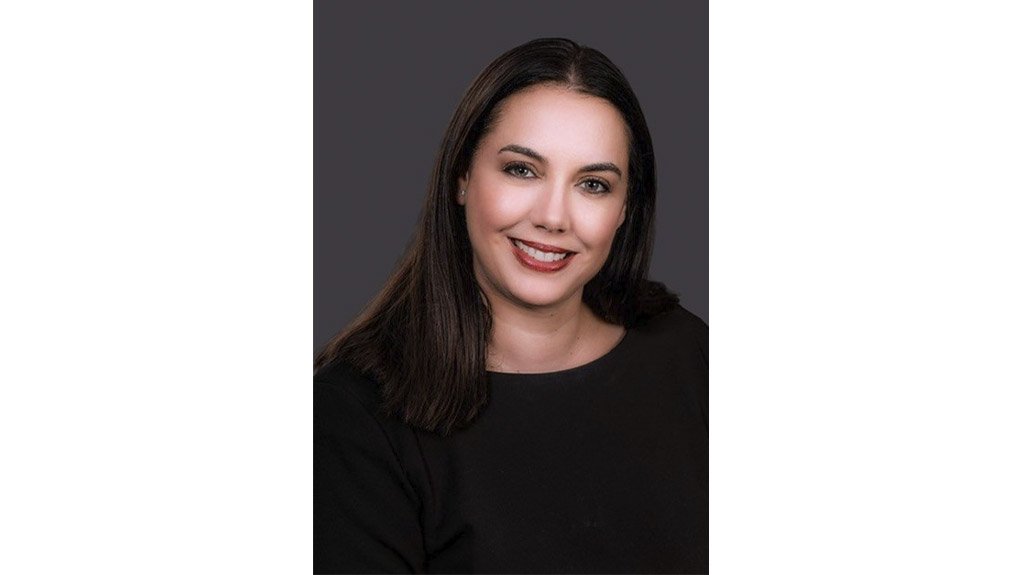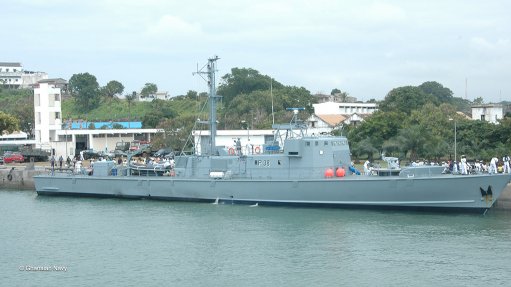How Post-Trade Could Shape the Future of ESG Investments
This article has been supplied as a media statement and is not written by Creamer Media. It may be available only for a limited time on this website.
By Michelle Swanepoel, MD, Standard Chartered's regional head for financing and securities services in Africa.
Investment strategies that are built on specific ethical factors are not new. The principles underpinning environmental, social, and governance (ESG) investment predate the 1960s. Early in the development of the ESG investment practice, ESG strategies were often performative and designed to appease customers or influence public perception. Such top down ESG investment policy implementation approaches offered few ways for stakeholders to verify the information or measure the effectiveness of reported interventions.
Modern investors seek both returns and accountability. These investors are far more socially conscious and clear that ethical issues, like tackling the climate crisis as an example, must be prioritized in investment decision-making. Investors want companies to keep their promises and use their money responsibly.
"Here for Good" is the brand promise of Standard Chartered Bank (Standard Chartered). As an emerging market bank operating in 59 markets in some of the world's most developing economies in the Middle East, Africa, and Asia, Standard Chartered places a strong emphasis on sustainability and doing what is best for the communities in which we operate.
Standard Chartered is committed to supporting sustainable growth and development and has established a sustainable finance division that is solely focused on supporting clients with their sustainable financing requirements and promoting it where it matters most. In addition, we produce an annual Sustainable Finance Impact report, providing an overview of the impact of our financing across all our asset pools. The 2021 sustainable finance impact report shows a $9.2 billion sustainable asset portfolio, up 138% year over year.
Standard Chartered’s securities services division serves 40 markets across the Middle East, Africa and Asia. Supporting Fund Managers in establishing post-trade monitoring and reporting of ESG funds or investments is something we see as an evolving conversation, although in its infancy.
How do custody and trustee functions fit into post-investment monitoring and transparency of portfolios, instruments, or funds?
This topic is constantly evolving and there is still a long way to go. Discussions relating to how a custodian can support post-trade monitoring for sustainable investments or ESG funds are still very new. There is great potential for what a trustee or custodian may be able to offer in the future in terms of post-trade monitoring and maintaining ongoing transparency, especially in cases involving complex portfolio activity. Corporate disclosure requirements and listing requirements are both undergoing change, but when fixed income and private side investments are merged, a complex data environment must be created to support ongoing investment monitoring and portfolio transparency. Standard Chartered firmly believes that the post-trade environment has a significant part to play in being able to deliver consistency, comparability, and reliability of sustainability-related information as far as a post-trade portfolio or investment monitoring is concerned.
What differentiates post-trade from investment decision-making and asset issuance in sustainable investing transparency?
Information drives ESG investment decisions and analysis and remains a key aspect of sustainable investment monitoring over time. Information availability and reliability is therefore important. The post-trade industry has the potential to obtain unique information from operations and processes that support investment activity, position management, shareholder holder ownership profiles and rights administration, voting mechanisms, and the ongoing monitoring and execution of shareholder instructions.
Monitoring individual investments is relatively simple. However, as portfolios increasingly combine traditional asset classes such as Equities and Fixed Income securities with emerging asset types such as crypto and digital assets or private equity investment as an example of the future, monitoring becomes more challenging. Standard Chartered is confident that there is an opportunity for custodians to deliver value by engaging the post-trade eco-system and developing industry standards and consistent practices that promote transparency and reliability of ESG data for multiple asset class portfolios, throughout the investment life cycle.
According to Standard Chartered's client engagements in the asset management community, there is a strong sentiment, in the collective investment context, that the trustee can play a role in terms of future compliance and investment mandate monitoring related to ESG investing but that the regulatory and legal framework covering a mandatory requirement of ongoing compliance monitoring on the quality of ESG investments is not yet in place to support. Therefore, in line with the growing focus on ESG and sustainable investing, the post-trade legal and regulatory frameworks need to be enhanced to include continuing obligations and parameters for sustainability information reporting, standards for assurance over ESG data and regulated monitoring and compliance duties. This will ensure that post-investment decision-making factors are still monitored and sustained in the future.
How could custodians support post-trade monitoring and investor behaviour oversight for sustainable investments?
Post-trade service providers like custodians can help to aggregate ESG data, but despite the growing volumes of ESG data being produced, limited access to consistent, reliable, comparable data that is supported by independent assurance poses the biggest challenge for consolidated reporting. Although the number of ESG-rated companies have grown, the use of terminology and rating approaches are not standardized. Regulatory practices are inconsistent and there is a lack of knowledge and expertise across all players. It would be difficult to report on individual sustainable investments which form part of a broader portfolio or fund as this could make the instrument unintentionally distinct from the rest of the portfolio.
Moreover, there is presently no specific regulation for post-trade monitoring of ESG investments or portfolios from a Collective Investments schemes perspective. Regulation serves as an enabler of the establishment of a standard for monitoring compliance and a system that can assist asset managers in providing information to their clients.
Standard Chartered is optimistic despite the obvious challenges, believing that the post-trade environment is already geared toward providing ESG compliance performance monitoring. Although specific tools still need to be developed to solve the known ESG data challenges, Standard Chartered is in a great position to develop this capability and is already testing prototypes as part of its innovation agenda.
Comments
Press Office
Announcements
What's On
Subscribe to improve your user experience...
Option 1 (equivalent of R125 a month):
Receive a weekly copy of Creamer Media's Engineering News & Mining Weekly magazine
(print copy for those in South Africa and e-magazine for those outside of South Africa)
Receive daily email newsletters
Access to full search results
Access archive of magazine back copies
Access to Projects in Progress
Access to ONE Research Report of your choice in PDF format
Option 2 (equivalent of R375 a month):
All benefits from Option 1
PLUS
Access to Creamer Media's Research Channel Africa for ALL Research Reports, in PDF format, on various industrial and mining sectors
including Electricity; Water; Energy Transition; Hydrogen; Roads, Rail and Ports; Coal; Gold; Platinum; Battery Metals; etc.
Already a subscriber?
Forgotten your password?
Receive weekly copy of Creamer Media's Engineering News & Mining Weekly magazine (print copy for those in South Africa and e-magazine for those outside of South Africa)
➕
Recieve daily email newsletters
➕
Access to full search results
➕
Access archive of magazine back copies
➕
Access to Projects in Progress
➕
Access to ONE Research Report of your choice in PDF format
RESEARCH CHANNEL AFRICA
R4500 (equivalent of R375 a month)
SUBSCRIBEAll benefits from Option 1
➕
Access to Creamer Media's Research Channel Africa for ALL Research Reports on various industrial and mining sectors, in PDF format, including on:
Electricity
➕
Water
➕
Energy Transition
➕
Hydrogen
➕
Roads, Rail and Ports
➕
Coal
➕
Gold
➕
Platinum
➕
Battery Metals
➕
etc.
Receive all benefits from Option 1 or Option 2 delivered to numerous people at your company
➕
Multiple User names and Passwords for simultaneous log-ins
➕
Intranet integration access to all in your organisation





















